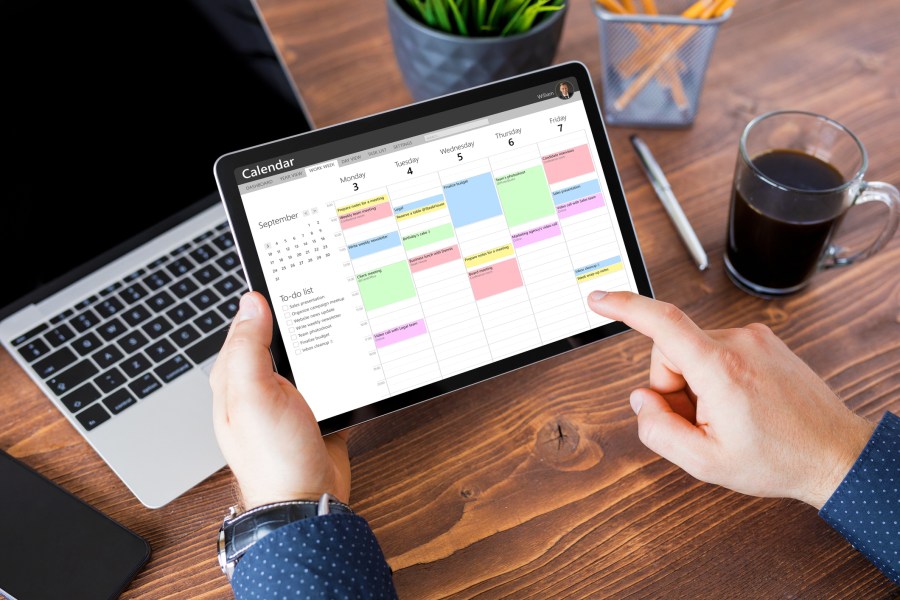Specifications of Lenovo Easy Camera on Laptop

If you're searching for a new device to surf the Internet at home, you have plenty of choices. There are desktop computers, laptop computers, and notebooks. Tablets and smartphones have so much functionality that some households use them in place of computers.
People who want a higher level of functionality and portability often opt for either a laptop or a notebook. With so many options for features and sizes, it can be easy to confuse these two types of computers. What are the differences, and which one is right for you? Learn more about what makes these two pieces of technology distinct so that you can find the right product for you.
Differences Between Laptops and Notebooks

Laptops are fully functioning computers. They often contain the same hardware and software that a desktop computer would, but the device is simply in a smaller, more portable form. Laptops have a keyboard and mousepad, and many laptops are also fitted with webcams, CD/DVD drives, and USB drives.
Notebooks are slightly different, prioritizing form over function. While a notebook has many of the most basic functions of a computer, key features are often missing, as a notebook's core purpose is to be small, lightweight, and easy to travel with. Some laptops are rather large. They would be cumbersome to put in a backpack or a briefcase. On the other hand, Notebooks are traditionally the size of a (you guessed it) notebook. They are made to use on the go, and can easily fit in small places.
Notebooks do not always have the same basic computer functions as laptops. You can often type on a notebook and use it to access the Internet, but a notebook does not always have a basic operating system. Google's Chromebook is a perfect example. These notebooks do not run off of a Windows, Apple, or Linux operating system as most fully-functioning computers do. Instead, these computers come loaded with web apps from Google, such as Google Docs and Google Sheets. This means that, to use these functions, a user would need to access the Internet. In an area with Wi-Fi, you can use a notebook in the same manner as a laptop, but it does not come loaded with the same basic software that would allow for offline use.

As design trends and consumer needs change, the line between laptops and notebooks becomes blurrier every year. Laptops came before notebooks, and they were originally marketed as portable computers. Laptops used to be more of a secondary computer that you might use at work or school when you are not near your desktop. Now that technology has become such an essential part of everyday life, more people need access to the Internet on the go. There are laptops on the market today that can do the same, if not more, than a desktop computer, and specialty laptops, such as ones for gaming, have even more features and processing power.
Some households opt for a laptop as a primary computer. They are portable and cheaper. Although they are growing, they are still smaller than desktops, which allows a customer to have access to a powerful computer without making it a permanent fixture in the limited space within a home. Greater reliance on laptops has called for greater functionality. Today's laptops have more processing power and more features than ever before. To house so many functions in a portable computer, some companies are making modern laptops larger and heavier.
The increased need for powerful technology by everyday consumers has also changed notebooks. Today, many people can do more on a smartphone or a tablet than they could do on a notebook a decade ago. With so many small yet powerful devices available, it is difficult for notebooks to compete. Many companies are creating notebooks that have more specialization. For example, a Chromebook with access to all of Google's web apps is perfect for you if your school or organization relies on Google's suite of web apps. Many companies also offer touch screen notebooks with apps with functions that are especially useful for artists and graphic designers. While notebooks are still generally smaller than laptops, some are becoming larger and heavier.
Should You Buy a Laptop or a Notebook?

Deciding whether you need a laptop or a notebook depends on how you need to use a device. Notebooks usually have much smaller keyboards than laptops. If you plan to use your computer for lots of typing, a laptop is likely a better choice. Although all laptops are not guaranteed to have these features, a laptop will be your best bet if you need hardware like a webcam, USB drive, or CD/DVD drive.
Some notebooks have enough functionality to serve as an individual's primary computer. If it is important to have a small and lightweight computer, and you have reliable access to wi-fi, a notebook is likely to fit your needs. If the size is not one of your most important factors, the key differences between a laptop and a notebook are features. Generally, laptops have more features than notebooks, but it is important to read the description of any laptop or notebook you're thinking of buying. There are no hard and fast rules when it comes to features. Some laptops lack many features you would expect, and some notebooks have every feature you can imagine.
Make sure the computer will serve the needs that are most important to you. If you do a lot of videoconferencing for work, a laptop without a webcam would not be a good choice. On the other hand, if you print lots of documents for school, a notebook that cannot connect to printers would not be a good choice.
Since laptops have faster processors and more features, they often make the best choice for a primary computer. If there is already a primary computer in your household, a notebook can be an excellent, cheaper, lightweight secondary computer.
Source: https://www.reference.com/world-view/laptops-notebooks-same-thing-91fa68eddbd69e60?utm_content=params%3Ao%3D740005%26ad%3DdirN%26qo%3DserpIndex&ueid=3d5c76b1-dc5b-4f15-b13c-55eca373a3dd
0 Response to "Specifications of Lenovo Easy Camera on Laptop"
Publicar un comentario